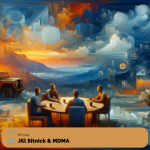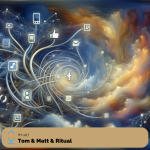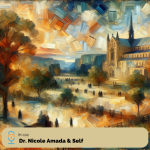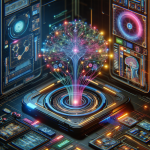
Sara Urquhart & Psychedelics in the Beehive
Summary
In this conversation, the hosts discuss the evolving culture of psychedelics in Utah, particularly in relation to the Mormon Church. Sara Urquhart shares her personal journey of leaving the church and how many individuals are finding healing through therapy and psychedelics. The discussion also touches on the legal landscape for psychedelics in Utah, the creation of a mushroom church for spiritual practices, and the importance of community in navigating these experiences. In this conversation, Sara Urquhart discusses the importance of personal interpretation in spirituality, the role of community in healing, and the integration of psychedelic experiences into everyday life. The dialogue explores how individuals can recreate a sense of belonging and support outside traditional religious structures, emphasizing the significance of sober gatherings and shared experiences. The conversation also touches on the evolving perceptions of psychedelics and mental health, highlighting the need for safe practices and the importance of integration after psychedelic journeys. In this conversation, Sara Urquhart discusses the significance of taking actionable steps after gaining insights from psychedelic experiences. She explains the concept of the Mushroom Church, where individuals create their own personal creeds, and the church’s approach to psychedelics. The conversation transitions into the evolution of their annual psychedelic festival, highlighting its growth and the diverse programming planned for the upcoming event. Sara emphasizes the community aspect and the intention behind their activities, aiming to create a space for healing, creativity, and connection.
Takeaways
- Utah has a growing psychedelic culture despite its religious background.
- Leaving a high-demand religion can lead to exploration of psychedelics for healing.
- Psychedelics are being recognized for their therapeutic benefits.
- Legal frameworks for psychedelics vary significantly across states.
- Creating a religious framework can provide protections for psychedelic use.
- Community support is crucial for individuals leaving traditional religions.
- Psychedelics can facilitate deep personal and spiritual experiences.
- The conversation around psychedelics is shifting from prohibition to acceptance.
- Microdosing is gaining popularity as a means of enhancing well-being.
- Religious trauma is a common theme among those exploring psychedelics. No one is telling you what the medicine wants from you.
- We don’t distribute medicine; all of our events are sober.
- We want people to worship in a way that feels safe and healthy.
- Religion should be about community.
- The rules are broken in terms of societal norms.
- Insights can come from a million places, not just therapy.
- Integration is key after psychedelic experiences.
- Sometimes psychedelics can be playful and creative.
- You have to approach psychedelics with a modicum of reverence.
- If you’re not doing real integration, you’re just getting stoned. You must do the work after gaining insights to change your life.
- Personal creeds allow individuals to define their own spiritual practices.
- The Mushroom Church welcomes various psychedelic practices.
- The festival has evolved from a small gathering to a large event.
- Community engagement is a key focus of the festival.
- The festival will feature a mix of speakers, music, and creative activities.
- Family-friendly programming is available during the day.
- The church aims to provide protections for its members.
- Future plans include expanding the festival grounds and activities.
- The goal is to attract a larger audience for the upcoming festival.
Chapters
00:00 Introduction to the Conversation
02:56 Exploring Psychedelics in Utah
05:54 Leaving the Mormon Church
08:54 The Role of Psychedelics in Healing
11:48 Legalities of Psychedelics in Utah
15:04 Creating a Mushroom Church
18:02 Community and Spirituality in Psychedelics
25:07 The Power of Personal Interpretation
26:01 Community and Sober Gatherings
27:30 Recreating Community Through Shared Experiences
28:35 The Role of Religion in Community Building
31:11 Expanding Consciousness and Psychedelics
34:14 First Experiences with Psychedelics
40:14 Integration of Insights from Psychedelics
46:16 The Balance of Fun and Healing in Psychedelic Use
52:34 The Importance of Action After Insight
53:34 Psychedelic Practices and Personal Creeds
54:50 Joining the Mushroom Church
55:32 The Evolution of the Psychedelic Festival
58:35 Festival Programming and Activities
01:01:51 Future Plans and Community Engagement
Podcast: Play in new window | Download








